More and more retirees are considering Tennessee as a top choice for retirement. It’s easy to see why. Tennessee combines natural scenic beauty, a mild climate, great attractions, and urban conveniences amidst rural peacefulness. With its low cost of living, great healthcare, and warm neighbors, Tennessee is a great state to call home.
Chattanooga is a popular place to retire in Tennessee. Its weather, scenery, and low living cost, make it a top choice. Nashville, Pigeon Forge, and Paris are also excellent choices for those planning to settle down.
Where are the best places to retire in Tennessee? Here are our top picks:
- Chattanooga
- Nashville
- Pigeon Forge
- Paris
- Murfreesboro
- Germantown
- Franklin
- Memphis
- Brentwood
- Maryville
- Sparta
- Kingsport
12 Best Places to Retire in Tennessee
1. Chattanooga
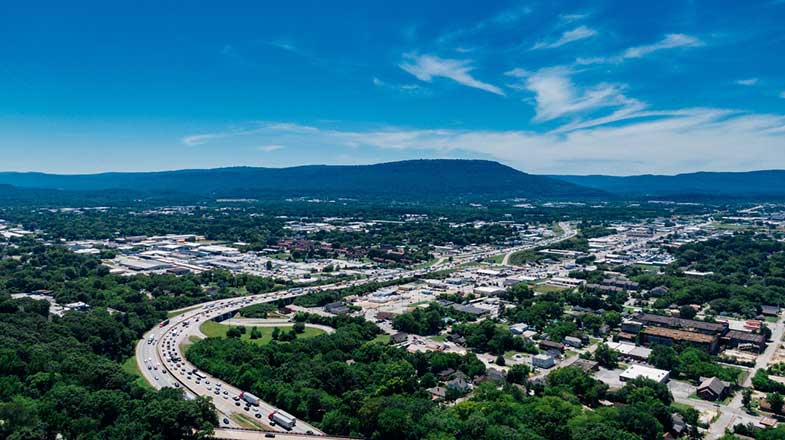
Chattanooga (called “Scenic City”) was often cited as one of the top destinations in America and even one of the best to visit in the world. It’s nestled between the mountains of Southeast Tennessee, along the Tennessee River. Many come to retire and are amazed that such a wonderful setting would cost only a fraction of that in the northeast or along the coast. The milder climate is a bonus. It’s an interesting retirement city of about 182,800 friendly locals.
The cost of living in Chattanooga is 83.8 versus 100 of the US average. The cost of groceries, housing, utilities, transportation, and miscellaneous costs is lower than the US average.
Average home price ranges from $200,001-$300,000. Retirees who come to Chattanooga to live in a walkable city that also offers lots of outdoor recreation. They prefer close-in neighborhoods, such as the Southside historic district, home for artists and trendy restaurants, and the Northshore with many restored single-family bungalows and near two large parks. The best places to retire at Southside are housing areas in Cowart Place, Fort Negley, and Jefferson Heights; the best places at Northshore are Hill City, Riverview, and Stringer’s Ridge.
Top choices are Creekside at Shallowford, The Terrace at Mountain Creek, Ashwood Square Retirement Resort, and Silverdale Senior Apartments.
Attractions
What are the top attractions in Chattanooga? Lookout Mountain is a major city attraction with its extraordinary rock formations. The world’s largest freshwater aquarium -Tennessee Aquarium – is located in Chattanooga. The Raccoon Mountain Caverns & Campground is Tennessee’s #1 rated cave and Chattanooga’s premier RV park and campground. Ruby Falls is the nation’s tallest and deepest underground waterfall at 145 feet. Also, find scenic parks, like Coolidge Park and Tennessee River Park, and great museums. See why Chattanooga is our No.1 choice in the best places to retire in Tennessee.
The best hospitals are also the most accessible to Chattanooga residents. They are the CHI Memorial Hospital, Parkridge East Hospital, and Parkridge Medical Center.
2. Nashville
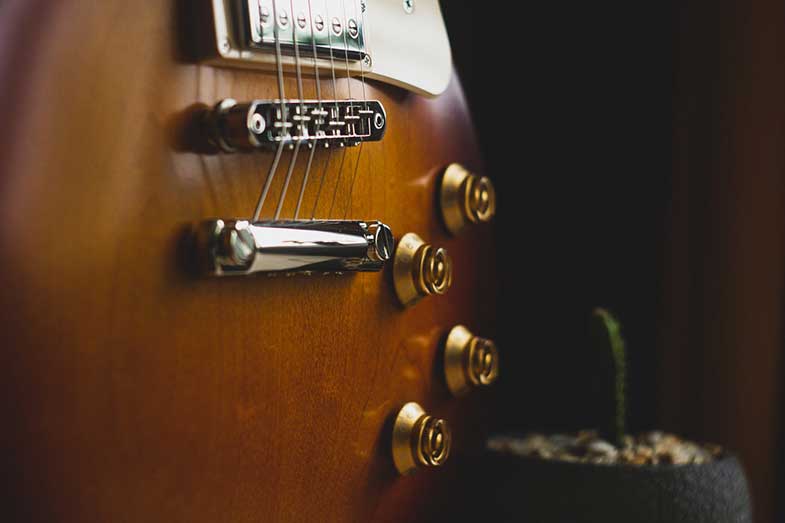
Famous for its vibrant country music scene, tons of recreational activities, and cultural attractions, Nashville is appealing to retirees looking for an exciting urban setting, lower cost of living, tax benefits, and a lovely climate. They can live comfortably in Nashville on a fixed income as the cost of living here is below the national average.
Nashville has boomed as its appeal to retirees increased. This was just a few years back when median home prices were just $230,000-$240,000. Now, data shows the median home sale price in Greater Nashville reached $359,000 (2021), the highest price recorded since 2009. In 2019 alone, home sales and home prices were up 10.6 percent and 9.6 percent, respectively.
Affordable Areas in Nashville
If you’re looking at the most affordable areas in Nashville, look at Ashland City, Bordeaux, Whites Creek, and Preist Lake, averaging $94-$104 per square foot; for the most desirable and expensive ones, there’s Downtown, Gulch(Midtown), Hillsboro(West End), and Downtown Riverfront, ranging from $320-$364 per square foot.
How about surrounding areas? Hendersonville, Murfreesboro, Mount Juliet, and many others are seeing a huge increase in housing demand, too. The most walkable neighborhoods sought by retirees are The Gulch, East End, West End/Vanderbilt, 12 South, Germantown, and Sylvan Park. If you prefer the suburbs, look into Lenox Village, West Haven, The Grove, and Tollgate Village.
Independent Living
If you prefer independent living, check out these top 55+ communities in Nashville: Southern Springs in Spring Hill, Lake Providence, and The Cottages of Providence both in Mount Juliet, Lenox Place in Gallatin, The Cloister at St. Henry in Nashville, and Colonial Village in Lebanon.
Nashville, the ‘Music City,’ doesn’t disappoint in attractions and things to do. The most popular is the Grand Ole Opry or Country Music Hall of Fame, a full city-block venue for Nashville’s best music and concerts. There’s also the historic Ryman Auditorium. Great museums are everywhere – Country Music Hall of Fame and Museum, Musicians Hall of Fame, Grammy Museum Gallery, and the Johnny Cash Museum. Enjoy the arts and culture scene with Frist Center for the Visual Arts, The Hermitage Presidential Museum, The Carnton, and the Cheekwood Botanical Gardens & Museum of Art.
Appreciate historical landmarks with beautiful architecture – Custom House, the Tennessee State Capitol, and The Parthenon in Nashville’s Centennial Park.
3. Pigeon Forge
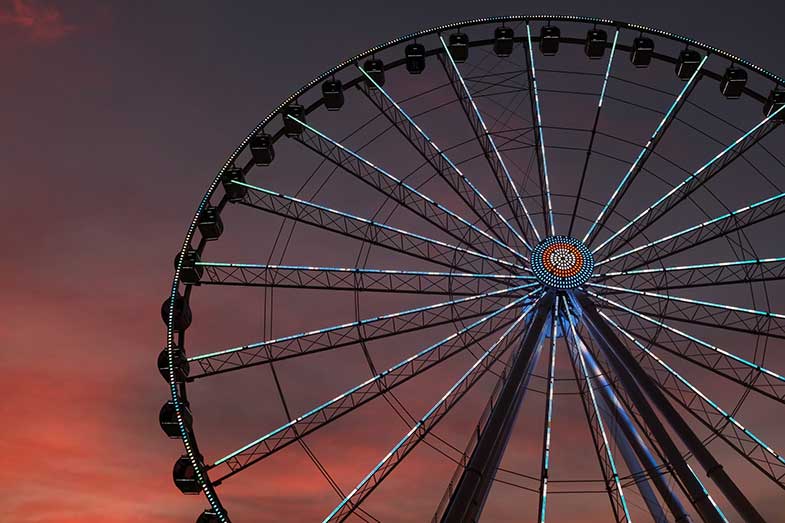
Pigeon Forge is a beautiful mountain resort city in Sevier County. It’s a tourist destination that sees 11 million visitors each year. Besides the natural environment, Pigeon Forge’s attractions include Dolly Parton’s Dollywood theme park and the Stampede theatre.
Pros
What’s special about Pigeon Forge? It’s a small town in a beautiful location with a low cost of living. A few miles away is the famous Great Smoky Mountain National Park, along with all sorts of outdoor recreation, entertainment, and dining choices.
Cons
And what’s not so special? Remember the 11 million tourists that go thru every year? And the crime rate associated with thick crowds? It is not a walkable community, and it doesn’t have a downtown area. Nonetheless, Pigeon Forge is highly covetable by retirees who love small town appeal, lots to do, and plenty of attractions.
It is particularly attractive to retirees with grandchildren. However, residents say it is a relatively quiet town owing to its small population (6,000 plus in 2010); surges happen during the vacation season.
Home Appreciation
Home appreciation for the last ten years has been 8.4%. 46% of homes are within the $133,000 to $266,000 range. The most expensive neighborhoods are Little Cove / Cove Creek Cascades, Waldens Creek / Wear Valley, and City Center. The average market rent is $1,102/mo. 53% are single-family homes, while 28% are apartment complexes. Pigeon Forge’s living cost is 13.4% lower than the U.S. average.
The town itself boasts an active community center, an award-winning Department of Parks and Recreation for its programs and facilities. It has over 130 acres of parkland and nearly 2 miles of greenways. The closest towns to Pigeon Forge City are Gatlinburg, Sevierville, and Pitman Center. If you prefer independent living, check out Norton Creek Mountain Preserve, a gated 55+ community in Gatlinburg, nearest Pigeon Forge City.
Attractions
More than 40 attractions in this little town make Pigeon Forge one of the best places to live in Tennessee. The world-known Great Smoky Mountains National Park is tops because it doesn’t charge an entrance fee; close to 11.3 visited in 2019. Most popular at the park are Cades Cove, Mt. Leconte, and Clingmans Dome, the highest point in the Great Smoky Mountains at 6,643 feet.
Dollywood is the amusement park of more than 50 rides (including amazing rollercoasters), owned by legendary country music singer Dolly Parton. Enjoy the birds at Parrot Mountain & Garden. Visit these museums – Titanic Museum, Alcatraz East Crime Museum, and The Salt & Pepper Shaker. For the more adventurous, try out Legacy Mountain Ziplines. There are also many dinner shows held at family theaters in and around Pigeon Forge.
For healthcare, residents in Pigeon Forge have access to the best providers in the region. There’s LeConte Medical Center, Tennova Healthcare-Jefferson Memorial Hospital, Covenant Health, Cherokee Indian Hospital Authority, Blount Memorial Hospital, and Pigeon Forge Care & Rehabilitation Center.
4. Paris
Paris is in Henry County, where you’d find a 70-foot replica of the Eiffel Tower standing in the southern part of this town. It is also well known for the “World’s Biggest Fish Fry,” an annual event held the last week of April.
Paris is also one of the best small towns in Tennessee to retire.
Its population is 10,059 (2010), a very ethically-diverse city, and has five constituent neighborhoods. Compared to the rest of the country, its living cost is 23.7% lower than the U.S. average.
Affordable housing is an asset in Henry County as the median home price in Paris is $93,300, and the median home value is $122,434. There are about 4,100 homes and apartments in the city; many of them are single-family residences. Price ranges from $25,999 to $899,900. More than half of the residents own their homes. Those renting pay an average market rent of $881/ per month.
Retirement Centers
There are Retirement Centers, too, as options; like Chateau Maurice, Eiffel Gardens that offers Assisted Living, Jackson Meadow (about $1,400/month), Morningside of Jackson that offers Assisted Living and Memory Care, Paris Residential Care Center, and RoseStone Retirement Community.
Attractions
What does Paris offer by way of attractions? There’s nothing more popular than the European-inspired 70-foot Eiffel Tower at the Eiffel Tower Park. There’s the Paris Lansing State Park, where you find Kentucky Lake, perfect for all water sports. The Paris-Henry County Heritage Center is a local museum and cultural center. Shop for wines and have tastings at Paris Winery and stay at the beautiful Westfalia Farm.
We must also mention the World’s Largest Fish Fry – an annual dining festival during April’s last full week. There’s a “Fish Tent” where 12,500 pounds of catfish (as of the last account) is served for ‘all you can eat’ with all the trimmings, plus parades, a carnival, rodeos, dances, arts and crafts, and other family-friendly activities.
The Henry County Medical Center is the major hospital in the community for the residents’ health concerns. It is known, among other services, for its research and treatment of cancer. For transportation, the Nashville and Memphis Airports are both within a 2-hour drive.
5. Murfreesboro

Murfreesboro City is known for its American Civil War history. It was ranked in Time Magazine’s “Best Places to Live in America.” The fastest-growing city in the US since the 1990s, it is now more known as home to Middle Tennessee State University.
With a friendly population of 128,000, Murfreesboro is just 30 miles southeast of Nashville. Attractive neighborhoods are found in all parts of town, though northern areas tend to have nicer homes. Apartments are also plentiful. The annual taxes on a $255,000 home are approximately $1,925.
There are independent living communities in Murfreesboro. The average cost is $2,750 per month, which is higher than the national median of $2,500. The top ones are Harmony at Victory Station, The Villages of Murfreesboro, Stones River Manor, and Westbrook Towers. Some offer assisted living and memory care aside from independent living.
It still has quiet country charm with parks and greenways. There are good cafes and restaurants. Music festivals, an arts center, and top cultural offerings from Middle Tennessee University are many. It is now a regional shopping hub (thanks to Interstate 24) with three large shopping malls and big retailers like Talbots, Dillard’s, Target, Home Depot, Bed Bath and Beyond, and two Wal-Marts.
Attractions
The top attractions to visit in Murfreesboro include parks, museums, and historical sites that make it one of the best small towns to retire in Tennessee.
The Stones River National Battlefield is where the historic Battle of Stones River was fought during the Civil War in 1862–1863. If you want to see what Murfreesboro looks like from the 1830s to the 1930s, visit Cannonsburgh Village, a reconstruction of a typical Southern village of the times.
The Oaklands Mansion is a former restored plantation house now a museum. Also known as ‘Earth Experience,’ the Middle Tennessee Museum of Natural History displays a 38-foot long male T. Rex dinosaur composed of over 300 bones. It’s the first museum of natural history in Middle Tennessee.
Discovery Center is the most popular children’s museum and nature center in Murfreesboro. Batey Farms is a historic family farm built-in 1807, popular for fresh produce. A favorite hang-out by the locals is Mayday Brewery for its great craft beers and live music.
It’s interesting to note that Murfreesboro residents 60 years old and above can avail of the St. Clair Senior Center’s services that coordinate with different local agencies for those needing services catering to the mature sector. There are recreational activities and classes, visitation, and delivery of meals to those who cannot leave their homes.
St. Thomas Rutherford Hospital caters to the health and medical needs of the residents. For transportation in Murfreesboro, Rover is the public bus system. The city also has a curb-to-curb mini-van service.
6. Germantown
A data website has named Germantown the best city to live in the Volunteer State based on income, crime rates, and more.
Germantown home prices are upwards of $331,700, and the median household income needs to be around $118,163/year to cover the cost of living. Germantown is one of the wealthiest places in Tennessee.
Why do retirees love living in Germantown? The quality of retirement living is high. The unemployment and crime rate in Germantown is well below the national average. Germantown has a peaceful nature, high safety ratings, and quick emergency response times.
Outdoor activities abound in Germantown. There are 700 acres of public parks, a wide selection of dining options. Shopping in the town is some of the finest in the Mid-South with the good quality of retailers. The arts and culture scene is vibrant.
Some of the closest neighborhoods around Germantown include Cordova, where the median listing price of homes is at $230,000; Poplar Estates, a 900 plus home neighborhood; East Germantown, a walkable community of 5,800 households; Germantown Park, with 3,000 homes and apartments for sale; and Dogwood Grove, with large lots and multi-story homes ranging from 3,500 to 7,500 sq ft.
The Village at Germantown is the premier over 55 community of Memphis located in Germantown. It offers five years of experience in delivering independent living options, from modern apartments to spacious villas, and offers physical rehabilitation, on-site healthcare, memory care programs, and assisted living.
Attractions
As one of the best places to retire in Tennessee, Germantown offers top attractions for such a small town.
There’s Fort Germantown Park, a park to find replicas of howitzer cannons Union Army troops used as fortifications to guard Memphis.
Shelby Farm Park, one of the largest in the US, has 40 miles of trails for walking and biking. The Shelby Farms Greenline is an iconic paved trail connecting Memphis to Cordova. Twenty bodies of water found in the park make fishing a favorite pastime here.
The Germantown Performing Arts Center is a venue for concerts, dance shows, and art exhibits.
Oaklawn Garden is a botanical garden, park, and museum with historical items related to local culture and railroad and local traffic on display.
Visit the Bobby Lanier Farm Park, Wolf River Nature Area, and Germantown Commissary, a famous Memphis barbeque restaurant serving hickory-smoked barbecue meats and hot tamales.
A must-mention is the Germantown Charity Horse Show, one of the country’s largest all-breed horse shows. Now on its 23rd year, held every June, it’s been showing beautiful horses, riding styles, and competitions. This shoe has been for the benefit of Kindred Place in Memphis for local education programs to stop domestic violence and child abuse and neglect.
7. Franklin
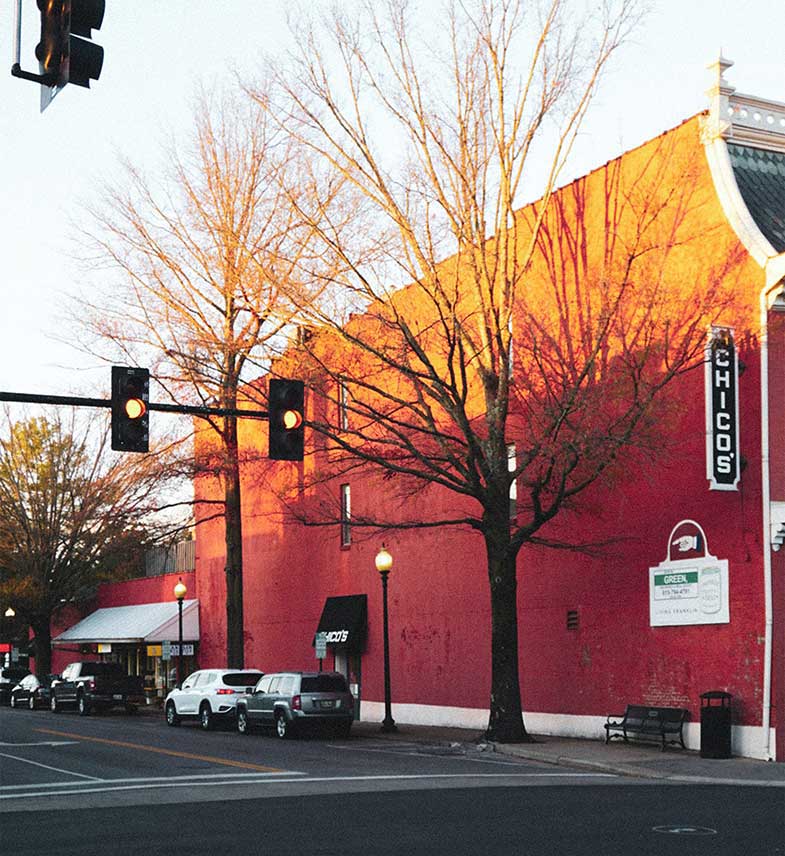
Is Franklin a good place to live in? There are several reasons to love to live in Franklin. The city is just 21 miles south of Nashville, a major city. The county it belongs to, Williamson, has had the fastest-growing job market in the vicinity of 29%, and the economy is strong. It’s been called ‘God’s Country’ for its beauty and esthetic. The culture is robust, and it’s a neighborhood of old money, celebrities, and musicians. The people are so warm and welcoming. And there are more reasons.
Franklin is a bit of an expensive place when looking at the cost of living. While some costs are below that of the US average, like utilities and health, housing cost is twice the US average. With a population of 83,097 and 18 constituent neighborhoods, Franklin is the ninth largest community in Tennessee. The median home price is $450,557; the average market rent is $2,069/ per month, among Tennessee’s most expensive. Per capita income in 2018 was $46,470, and annual income for a family of four is $185,880.
There are 28,409 homes and apartments in the city; 38% of the homes are new from 2000. Franklin’s wealthiest neighborhoods are Bingham / Parry, Berry’s Chapel, Forest Home, Champions Cir/ Champion Cir, City Center/O’More College of Design, and West Harpeth/ Douglas.
About 24% of the residents belong to the 55+ demographic. Franklin’s average cost of independent living is $3,098 per month, higher than the national median of $2,500. Several good to luxurious senior living options are The Manor at Steeplechase, Somerby Franklin, The Hearth at Franklin, and Brookdale Franklin.
Attractions
One of the reasons people find Franklin one of the best places to retire in Tennessee is the fun things they can do in the city. Franklin’s rich history is seen in preserved homes, historic civil-war sites, and museums. There are several theaters offering dramas, musicals and comedies, and artists all around. Visiting galleries, art crawls, pop-up markets, unique artisans, and one-of-a-kind stores will keep you busy, informed, and entertained.
Downtown’s Main Street is one attraction hard to resist as you walk through the galleries, antique shops, and restored Victorian buildings. Great dining options are there for the savoring. With all these, one can thoroughly enjoy Franklin.
8. Memphis
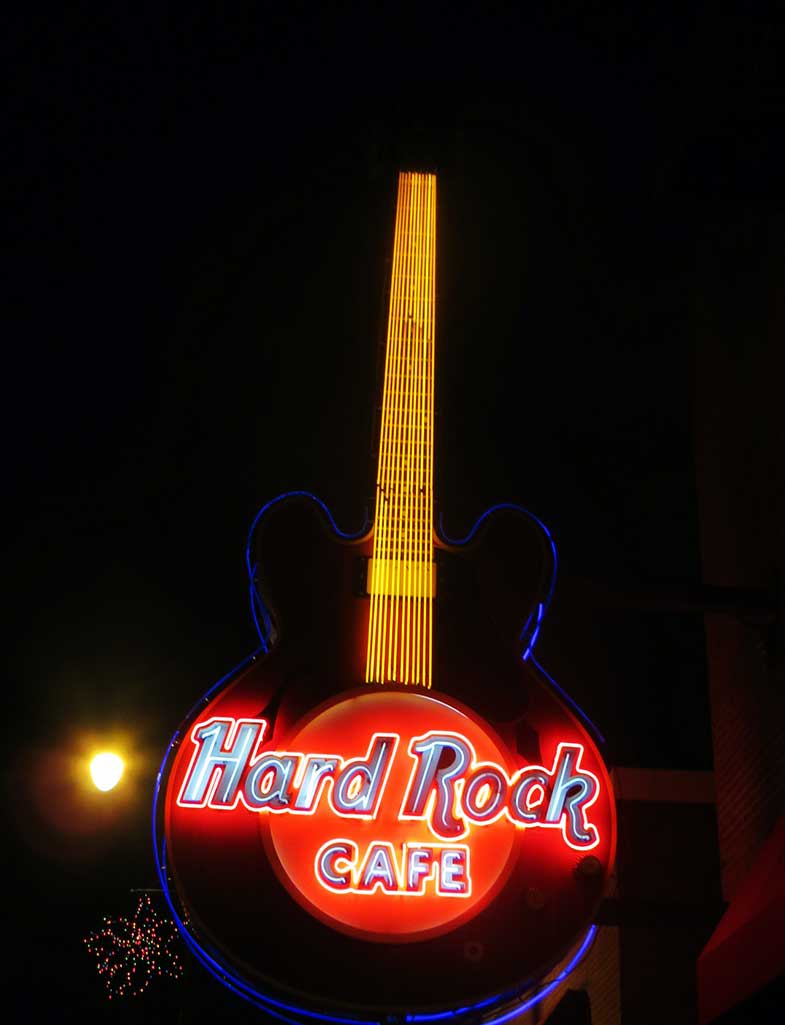
Who doesn’t know Memphis? With a population of 651,073, it’s Tennessee’s second-most populous city behind Nashville. Memphis is prominent for its music scene – a multicultural mix of influences: the blues, country, rock and roll, soul, and hip-hop. Besides, its barbeque, Memphis-style, is renowned internationally. The city plays host to the World Championship Barbecue Cooking Contest; 100,000 visitors come annually.
However, is Memphis a good place to retire? For one, Memphis has a low cost of living, where goods and services are cheaper than the rest in the state of Tennessee and the US.
Cost of Living
The cost of healthcare, though, is closer to the US average. Since Memphis is centrally located, it has become a hub for trade and commerce, so that transportation from the city is, by far, excellent. Memphis is a huge city with 181 constituent neighborhoods, making it the largest community in Tennessee. More ideal for those in their 20s and 30s, career starters, and young professionals, the city is also attractive to retirees, though only 24% of the population is 55+ in age.
The median home value in Memphis is $107,229. There are many homes and apartments in this large city – 250,812, and about 45% are owned, and 54% are renters. The average market rent is $1,187/ per month. Differing from other places in this list, Memphis is predominantly African-American at 64% of the population.
High Appreciating Neighborhoods
Five of the highest appreciating neighborhoods are Channel Ave / Pier St, Poplar Ave / N Danny Thomas Blvd, Southern College of Optometry / Madison Ave, N Watkins St / Jackson Ave., and Baptist Memorial College of Health Sciences / Poplar Ave. Five of the safest neighborhoods are Shady Oaks Ln / S White Station Rd, Poplar Ave / S Perkins Rd, E Shelby Dr / Forest Hill Irene Rd, Berclair, and Finch Rd / Riverdale Rd.
Independent living communities thrive in Memphis, and some retirement places also offer assisted living and nursing care options. Some of the best facilities for the 55+ sector are Town Village Audubon Park, The Glenmary at Evergreen, Heritage at Irene Woods, The Parkview, and Lutheran Village.
Attractions
The city of Memphis has over 60 known attractions in a wide array of types and locations. Considering the best of the best: Graceland, former home of the King of Rock & Roll, gets 650,000 visitors a year, the most-visited privately owned house in the USA.
The National Civil Rights Museum, a complex of museums and historic buildings, traces the history of the US’s civil rights movement from the 17th century to the present.
Other popular museums are Stax Museum of American Soul Music, Children’s Museum of Memphis, and Memphis Brooks Museum of Art.
The 100-year old Memphis Zoo houses more than 3,500 animals representing over 500 different species. The most visited parks are Shelby Farms Park, Tom Lee Park, and Overton Park.
For more serene and evocative spaces, visit these gardens: Cooper-Young Gardens, Memphis Botanic Garden, and Overton Park.
Entertainment District
The Beale Street Entertainment District is a historic street in Downtown Memphis, built in 1901. It’s less than 2 miles of crowded nightclubs, restaurants, and shops; a melting pot of delta blues, jazz, rock ‘n’ roll, R&B, and gospel. It’s declared the Home of the Blues by an act of Congress.
Another Memphis attraction is Southland Casino Racing, one of the top greyhound racing grounds in the country. In 2019 alone, 6,656 greyhound races took place here. And, not leaving out the best thing about Memphis – Barbeque!
The best joints are Charles Vergos’ Rendezvous, Central BBQ, Corky’s BBQ, Marlowe’s Ribs & Restaurant, Cozy Corner, and The BBQ Shop. There are hundreds more across town.
Though Memphis’s appeal is more urban than rural, big city than small-town charm, it is precisely the aura that attracts many retirees finding Memphis one of the best places to retire in Tennessee.
9. Brentwood
Brentwood is a city in Williamson County, a suburb of Nashville, and is considered one of America’s wealthiest cities. Though music celebrities live in Brentwood due to its proximity to “Music City,” as well as some corporate CEOs, the city and its residents tend to be conservative.
The population was 37,060 as of 2010 and estimated at 42,783 in 2019. On top of these all, the small city is one of the safest places to live in Tennessee. According to stats, the chances of being a victim of a violent crime in Tennessee is 1 in 168. In Brentwood, it’s 1 in 1,126. As per the crime index, Brentwood is safer than 62% of US cities.
Cost of Living
The cost of living in Brentwood is higher than the US average (161 vs. 100). Though health and utilities are lower than the US average, the cost of groceries and transportation are above the average. Housing and median home costs are three times the average. Only 2.8% of the population is below the poverty line.
The median home value is $727,178. There are 13,554 homes and apartments in Brentwood, 92% of these are single-family homes, and a high percentage (90%) own their homes. The average market rent is also higher here than in most cities – at $ 2,922/ per month. The wealthiest neighborhoods in Brentwood are Franklin Rd / Murray Ln, Winston Dr / Ethan Ln, Brentwood Station, Hillsboro Rd / Boxwood Dr, and Foxborough Sq W / Foxborough Sq E.
About one-fourth of the population belongs to the 55+ demographic. The average cost of independent living in Brentwood is $3,378 per month, even higher than Franklin’s. Traditions of Mill Creek, Southerland Place, The Heritage at Brentwood, and Harmony at Brentwood are the available independent living options. There are also assisted living communities in and around Brentwood.
In healthcare, Brentwood’s residents avail of the medical centers and facilities in nearby Nashville, which is only 10 miles drive away. However, the city has a few providers within its limits: The Smart Hospital, Specialty Care, and Lifepoint Hospitals.
Attractions
What are the top things to do in Brentwood? Great parks, like Old MacDonald’s Farm & Fun Park with lots of animals and play; Weald Country Park for feeding deer and lots of ducks and geese in the pond; Thorndon Country Park with their forest trails and a wildlife preserve; and Crockett Park with its hiking and biking trails. For crazy golf and skateboarding, go to King George’s Playing Fields. Deerwood Arboretum has 60 species of trees, mostly native to Tennessee.
The Dryer Observatory inspires through the wonders of astronomy and space exploration. The Brentwood Library has a great collection of books and an award-winning children’s library. For art appreciation of prints, it’s Brandler Galleries Brentwood.
10. Maryville
According to a top data ranking site, the city of Maryville is one of the Best Places to Live in Tennessee for 2020. Furthermore, even Forbes has placed it in the best places to retire in the US in 2018. It cites Maryville’s scenic lakes and mountains, the cost of living which is 13% below the national average.
Maryville has enough doctors per capita, good air quality, a local economy, and a low serious crime rate. However, the city management then was promoting Maryville to singles and young families rather than to retirees. ‘Guess that has changed since.
Cost of Living
The cost of living in Maryville is just 88.8 versus the US average of 100. Grocery, utilities, transportation, housing, and median home cost are all below the US average.
With a total population of 29,000, the city has 14 constituent neighborhoods. Its real estate is some of the most expensive in Tennessee. The per capita income in 2018 was $30,485, which is wealthy relative to Tennessee. The median home value is $222,547.
Cost of Living
There are 10,565 homes and apartments in Maryville; 71% are single-family units, and 64% own their homes. The average market rent in the city is $1,280 / per month. Some of Maryville’s most expensive neighborhoods are Belle Meade, Mint / Wellsville, Hubbard / Rocky Branch, Chilhowee View / Blockhouse, Lanier / Shaddon Mill Clover Hill / Binfield.
Residents in the 55+ age sector comprise 28.5% of the population. 21 independent living communities serve Maryville. Places like Parkview Senior Living, Shannondale of Maryville, Asbury Place Maryville, and Clover Hill Senior Living, charge from a range of about $1,427 per month to $3,300 per month. However, there are also eight assisted living facilities with an average cost of $3,455 per month.
For the residents’ healthcare needs, several hospitals are serving Blount County. Among them are Blount Memorial Hospital, Peninsula Hospital, and Maryville Surgical Center.
Attractions
Here are some of the top sites in Maryville. Firstly, the city is a gateway to Great Smoky Mountains National Park. If a trip is intended to visit the park, one access to the Great Smokies is via the Smoky Mountains Visitor Center at Maryville.
Museums: Blount County Historical Museum tells the county’s history, while Cades Cove Museum is a family log cabin with historical artifacts. Parks galore on the Blount: Pearson Springs, Louisville Point, Bicentennial Greenbelt, Beal, Sandy Springs, and Maryville Alcoa Greenway.
The Sam Houston Schoolhouse is a historic single-room log-cabin-style schoolhouse built-in 1794. Blue Goose Vineyards and Pleasant Hill Vineyards offer wines to taste and purchase. Book a tour of the 1920’s Capitol Theater or shop at The Antique Malls.
11. Sparta
Sparta is situated on the left bank of Calfkiller River, in a beautiful valley five miles from the Cumberland Mountains. The city and White County have become one of the nation’s top proponents of the “bluegrass roots” movement. The voices, guitars, and banjos from all over the county are unmistakably the sound of bluegrass.
Sparta has a population of 4,949 and has five constituent neighborhoods.
Cost of Living
The median home value in Sparta is $102,618. The average market rent is $974/ per month. There are 1,765 homes and apartments in the city. About 79% are of the single-family home types; 56% of the residents are owners. Since 2000, Sparta’s highest appreciating neighborhoods are Peeled Chestnut / Shady Grove, Eastland / Clifty, Findlay, and the City Center.
About 31% of residents in Sparta belong to the 55+ age bracket. If purchasing a home is not an option, here are some of the retirement communities for 55+ adults in Sparta.
The Life Care Center of Sparta is another at Mose Drive that can accommodate up to 100 seniors at a time; an additional service is Alzheimer’s and dementia care. The Bridge Assisted Living at Life Care Center of Sparta is a pet-friendly retirement residence at Mose Drive; it can look after 60 or fewer adults.
Attractions
What’s to look forward to in Sparta by way of attractions? Well, Sparta has a vibrant arts community, well-known for its musical heritage.
Amenities include the symphony and a nationally renowned playhouse. Sparta’s natural beauty is such that it’s got more waterfalls than any other county in the state and more state parks in a two-hour drive than can be visited in a month.
12. Kingsport
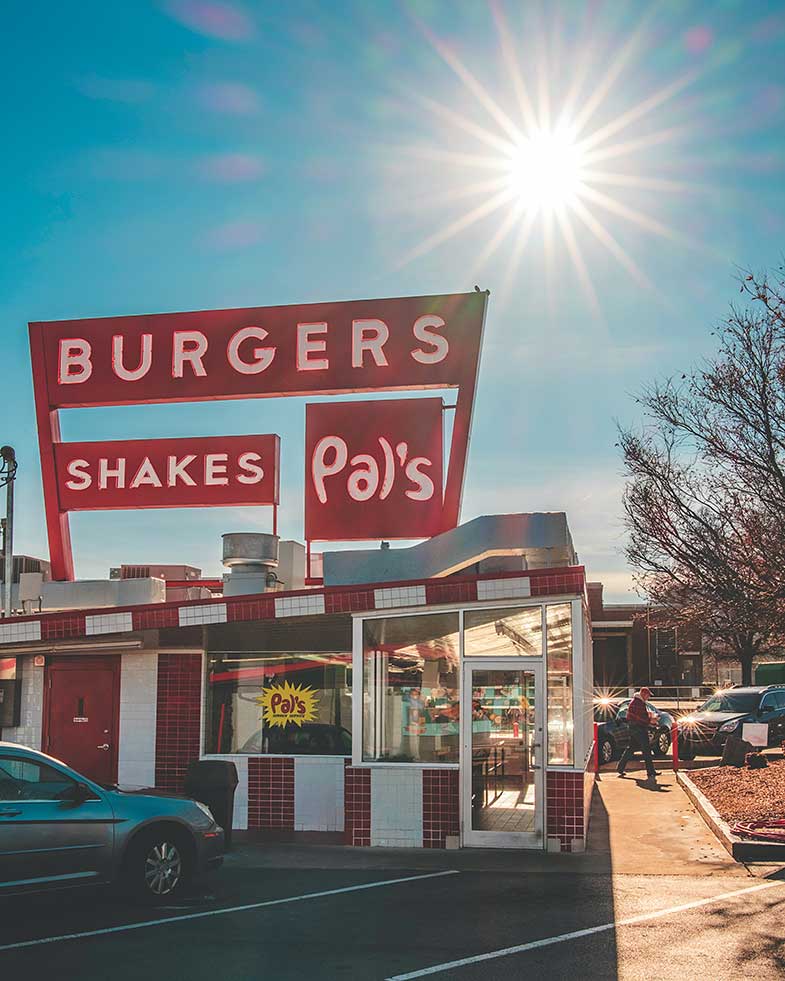
Kingsport is the largest city in both Sullivan and Hawkins counties but is the county seat of neither. It is the home of the most visited state park in Tennessee – Warriors Path State Park that sees 2 to 2.4 million visitors a year. Yet, the city is near five national parks, 15 state parks, and 6 TVA lakes.
Kingsport is proving to be one of the best places to live in Tennessee. Living here provides not a rural feel but rather a dense suburban feel, and most residents own their homes.
Cost of Living
The cost of living for housing, utilities, groceries, healthcare, transportation, and income taxes in Kingsport is below the US’s national average. Thus, many are considering Kingsport as one of the best cities to retire in Tennessee.
The median home value in Kingsport is $158,628. The average market rent is $857/ per month. There are 23,520 homes and apartments in the city. About 54% are of the single-family home types; 60% are homeowners. The most expensive Kingsport neighborhoods are Rock Springs / Double Springs, Colonial Heights, Foodtown / Smith Shoals Subdivision, Pactolus / Summersville, Sunnyside / Bridwell Heights, Bloomingdale, Chippendale Rd / Ambleside Rd., and Fort Robinson / Howard Hill.
Retirement Communities
About 36% of residents in Kingsport belong to the 55+ age bracket. The city is home to many retirement communities geared to this demographic. Most of the top senior living communities offer assisted living and/or nursing care.
These are Elmcroft of Kingsport, Brookdale Kingsport, Brookdale Rock Springs, Brookdale Colonial Heights, Asbury Place at Kingsport, Preston Place Suites, Asbury Place at Steadman Hill, and Nhc Healthcare, Kingsport.
Several upstanding hospital facilities are serving Kingsport. The Holston Valley Medical Center, recognized as one of the best hospitals for vascular surgery and orthopedic surgery; Indian Path Community Hospital, recognized for patient safety excellence; and Rehabilitation Hospital of Kingsport, specializes in rehabilitation from stroke; and The Heart Center, a heart hospital.
Attractions
Kingsport doesn’t lack in things to do. The city has a rich and full history and is home to many sites and museums that promote Kingsport and eastern Tennessee’s history. There’s the Exchange Place, Living History Farm Museum, Netherland Inn Museum, Allandale Mansion, and Christopher Taylor House.
Several parks are within the city limits as the Warriors’ Path State Park, Kingsport Greenbelt, and Borden Park. Find family entertainment at Bays Mountain Park & Planetarium and the new Kingsport Aquatic Center. Stroll Downtown Kingsport and see the Antique District with the largest concentration of antique stores and fine art galleries in the Southeast. There are other retail and specialty shops that offer merchandise from apparel and furniture to flowers and jewelry. Shop at Fort Henry Mall and experience many dining options everywhere.
Conclusion – Best Places to Retire in Tennessee
To review, here are our top picks for the best places to retire in Tennessee:
- Chattanooga
- Nashville
- Pigeon Forge
- Paris
- Murfreesboro
- Germantown
- Franklin
- Memphis
- Brentwood
- Maryville
- Sparta
- Kingsport
The best places to retire in Tennessee are picked for a variety of reasons. First, the climate is an important factor, and Tennessee, compared to other southern states, is favored for its mild weather.
Near scenic mountains, rivers, and verdant hills and plains, Tennessee is well endowed with natural beauty. Residents in many cities and suburbs in Tennessee live affordable and comfortable lifestyles in retirement.
Among others, the safety rate, the attractions offered, and welcoming neighbors were considered important by retirees.
